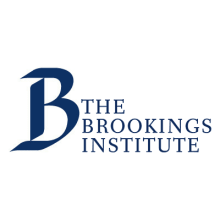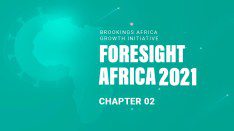In addition to directly causing the deaths of at least 200,000 people in Africa, the COVID-19 pandemic is also disrupting critical health services and undermining years of progress fighting other deadly diseases, such as human immunodeficiency virus (HIV), tuberculosis (TB), and malaria, which continue to be the leading causes of death in the region. In order to better understand the extent of this impact, a recent report by The Global Fund utilizes data from urban and rural health care facilities in 24 African countries and seven Asian nations to investigate and compare the spillover impacts of the pandemic on essential health care services for HIV, TB, and malaria.
In 2020, access to health care services declined significantly throughout the world compared to 2019. The authors attribute this unprecedented decline in patient attendance to challenges facing both medical facilities and the patient community (Figure 1). For patients, the fear of contracting COVID-19 from their visit was the most cited reason for not seeking medical care. The inability to reach health care facilities due to disruptions in public transportation and stay-at-home orders was also a prominent challenge for patients looking to access health care—a problem, according to the authors, that has been more relevant for urban residents.
Figure 1. Reasons for disruption to health care services from the perspective of medical facilities and patients
Source: “The Impact of Covid-19 On HIV, TB and Malaria Services and Systems For Health: A Snapshot From 502 Health Facilities Across Africa And Asia,” The Global Fund, 2021.
For medical facilities, the focus on COVID-19 reduced access to standard health care services overall, as some facilities either reduced or stopped offering some standard medical services or were overwhelmed with treating COVID-19 patients presenting acute symptoms of respiratory infection. While noting that the reduction in overall services is detrimental to all patients’ well-being, the authors warn that hampering access to health care may specifically elevate the mortality rate of children under 5.
Related Content
Because COVID-19 remains the dominant focus of medical practitioners, international donor organizations, and governments, The Global Fund posits that this shift in focus to COVID-19 resulted in a reduction of “general health communication campaigns … [that] encourage people to seek out health care.” As a consequence, testing and treatment of diseases like HIV/AIDS, TB, and malaria have dipped.
More specifically, regarding HIV, the authors argue that the interruptions in testing and treatment of the disease, paired with prospective patients’ increased wariness in seeking medical care, may have heightened the risk of individuals unknowingly spreading it. Although Asia experienced the most severe disruptions to HIV health care services, the significant declines in preventive health care services for HIV in Africa pose particularly devastating consequences for the region, as it accounts for 67 percent of the global population living with HIV/AIDS
Figure 2. Impact of COVID-19 on HIV treatment referrals (left) and testing (right)
Note: The line graph describes service delivery for the same period in 2020 (left y-axis).The gray blocks represent the number of COVID-19 cases diagnosed per surveyed facilities (right y-axis).
Source: “The Impact of Covid-19 On HIV, TB and Malaria Services and Systems For Health: A Snapshot From 502 Health Facilities Across Africa And Asia,” The Global Fund, 2021.
Drug-sensitive TB was the most severely affected infectious disease, with a nearly 60 percent decline in diagnoses and a nearly 80 percent decline in treatment referrals relative to 2019 (Figure 3). In Africa, treatment referrals returned to near pre-pandemic levels by September 2020; however, drug-sensitive TB diagnosis in Africa remains off-track, recovering only to roughly 20 percent of 2019 levels in September 2020. Both metrics for TB depict much more severe disruptions to TB health care services in Asia.
Figure 3. Impact of COVID-19 on TB diagnosis (left) and referrals (right)
Note: The line graph describes service delivery for the same period in 2020 (left Y axis).The gray blocks represent the number of COVID-19 cases diagnosed per surveyed facilities (right Y axis).
Source: “The Impact of Covid-19 On HIV, TB and Malaria Services and Systems for Health: A Snapshot From 502 Health Facilities Across Africa And Asia,” The Global Fund, 2021.
The global death rate from malaria has declined 60 percent since 2000, but Africa still accounts for 94 percent of the world’s annual malaria cases and deaths. Importantly, the reduction of malaria treatment in Africa (Figure 4), where the disease is endemic, poses a serious threat to large numbers of susceptible Africans—especially children under the age of 5, who comprise the vast majority of annual malaria deaths.
Figure 4. Impact of COVID-19 on malaria diagnosis (left) and treatment (right)
Note: The line graph describes service delivery for the same period in 2020 (left y-axis).The gray blocks represent the number of COVID-19 cases diagnosed per surveyed facilities (right y-axis).
Source: “The Impact of Covid-19 On HIV, TB and Malaria Services and Systems for Health: A Snapshot From 502 Health Facilities Across Africa And Asia,” The Global Fund, 2021.
The authors warn that the disruption to critical health care services poses a serious threat to undiagnosed individuals, their local communities, and global health security. The risk that undiagnosed individuals will infect others with HIV or TB—or succumb to malaria without pursuing treatment—is now much higher than before the pandemic. Moreover, the authors warn that the pandemic has effectively derailed years of progress in reducing the disease burden in Africa and the rest of the developing world. In response to these challenges, The Global Fund recommends health care facilities implement adaptive measures to reduce the volume of visits to clinics and improve health services delivery. Such actions include providing long-term drug prescriptions to ensure uninterrupted access to medication, door-to-door decentralized distribution of long-lasting insecticidal nets, and incorporating TB screening in digital health screenings for COVID-19.
For more on supporting health care systems in Africa, read Africa CDC Director Dr. John Nkengasong’s Foresight Africa 2021 essay, “Building a new public health order for Africa—and a new approach to financing it.” For more on innovative and technological solutions to complex health care challenges, see AGI Senior Fellow Landry Signé’s recent paper, “Strategies for effective health care for Africa in the Fourth Industrial Revolution.”








